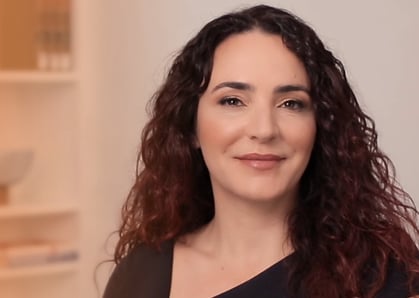Universities Win Dismissals of Class Actions Seeking Tuition Refunds
COVID-19 class actions continue to increase and are expected to spread to additional areas of law. Higher education has been one of the prime subjects of class actions thus far. To date, over 250 class action lawsuits have been filed against universities and colleges around the country in response to the cancellation of in-person instruction and campus activities. Plaintiffs in these suits have sought to recover refunds of tuition and fees. In Florida, there are more than 20 pending cases involving both public and private universities and colleges. Though a number of schools have offered pro-rated refunds on room and board, they have been less inclined to offer tuition discounts.
Lawsuits of this type have been based on breach of contract and other theories, such as unjust enrichment and conversion, and have most often been surviving motions to dismiss. But two cases decided in the last two weeks, Hassan v. Fordham University 1 and Gociman v. Loyola University of Chicago 2, resulted in dismissals at the pleading stage, offering hope to schools eager to avoid protracted litigation in the event they become the next class action targets.
A key basis for the dismissals was the courts' conclusion that the plaintiffs failed to identify a specific promise that was breached by the universities and colleges. The courts deemed insufficient the plaintiffs’ references to statements made in class catalogs and marketing materials sent by the schools.
In Hassan, the U.S. District Court for the Southern District of New York concluded that the plaintiff had failed to identify “a sufficient specific promise to provide in-person educational services.”3 Generalized descriptions of classes and attendance policies in university materials (such as course catalogs, handbooks, and marketing materials) were insufficient to identify a specific contractual representation that had been breached.4
Like Hassan, the plaintiffs in Gociman failed to allege a specific promise for in-person instruction.5 Indeed, in that case, Loyola was able to show that the materials contained limiting references like “published for information purposes,” and statements reserving the university’s right to change at any time and without notice the content of the written materials.6 Notably, Loyola’s difference in tuition for online versus in-person instruction was insufficient to allege a specific contractual promise. 7
Standing was another key reason for the dismissal in Gociman. The U.S. District Court for the Northern District of Illinois held that parents paying tuition and fees so that their adult children can enroll at a university did not thereby establish standing.8 The plaintiffs in Gociman did not allege that their children were minors or that they had entered into a contract with the university or were intended third-party beneficiaries.9
Allegations of "educational malpractice" generally do not give rise to cognizable claims in most jurisdictions that have considered the issue.10 Thus, claims asserting an inferior quality of education as a result of remote learning are most often not actionable. The education system is afforded great deference when it comes to making judgments as to educational services.11 The court found in Gociman that the complaint clearly challenged the quality of online instruction, which was tantamount to an education malpractice claim.12 Plainly, making such a claim did not insulate the plaintiffs from dismissal of their claims at the pleading stage.
Other claims for unjust enrichment and conversion, which are typically alleged in these types of cases, were also dismissed. Unjust enrichment claims are generally not cognizable claims where a plaintiff has an available claim for breach of contract, regardless of whether such a claim is viable.13
Similarly, conversion claims in this context are extremely difficult to allege. Conversion requires the wrongful exercise of dominion over personal property, including money, to which a plaintiff has a possessory interest.14 Intangible property cannot be the subject of this claim.15 So the universities' failure to provide in-person services cannot be the basis of a conversion claim. The failure to refund monies back to the students for those services are likewise not actionable. Money typically can only be the subject of a claim for conversion if there is a specific allegedly "converted" pool or fund of money in which the plaintiff has a possessory interest. 16
These two recent decisions show that the documents and materials published by the universities and colleges and signed by students should be carefully scrutinized as soon as litigation commences (and, preferably, prior to the filing of a lawsuit). These cases demonstrate that the more ambiguous or conditional the representation or promise at issue, the better it is to challenge the sufficiency of a breach of contract claim. In addition, allegations that sound more like criticism of the quality of instruction should be challenged. Waiver and ratification are defenses that should also be considered -- did the student pay for a semester knowing that instruction would not be in-person? Standing, as noted above, is another key consideration in these types of refund cases. In short, colleges and universities confronted with tuition refund lawsuits have a variety of defenses available to them.
1 Hassan v. Fordham Univ., No. 20-CV-3265 (KMW), 2021 WL 293255 (S.D.N.Y. Jan. 28, 2021).
2 Gociman v. Loyola Univ. of Chi., 2021 BL 24246 (N.D. Ill. Jan. 25, 2021).
3 Hassan, 2021 WL 293255 at *7.
4 Id. at 11.
5 Gociman, 2021 BL 24246 at *4.
6 Id. at *5-7.
7 Id. at *5.
8 Id. at 3.
9 Id. at *2-3.
10 Montany v. Univ. of New England, 2016 WL 3566200, at *11 n.6 (D. Me. June 24, 2016) (“[E]ducational malpractice is a claim that has been rejected in the majority of states that have considered it. . .”); Tubell v. Dade Cty. Pub. Sch., 419 So. 2d 388, 389 (Fla. 3d DCA 1982) (finding that educational malpractice claim is not viable under Florida law).
11 Hassan, 2021 WL 293255 at *4.
12 Gociman, 2021 BL 24246 at *4.
13 Id. at *2.
14 Hassan, 2021 WL 293255 at *20.
15 Id.
16 Id.

